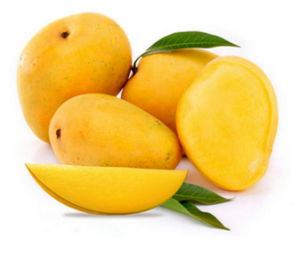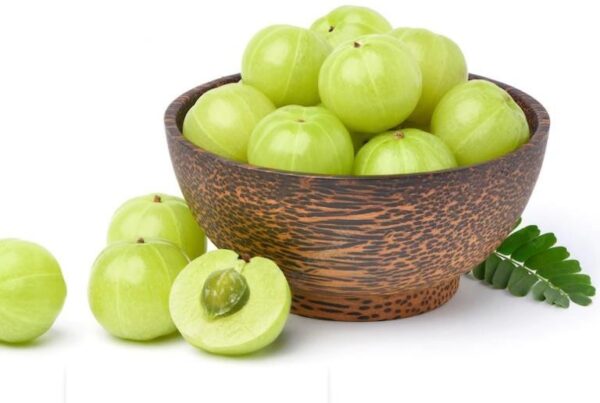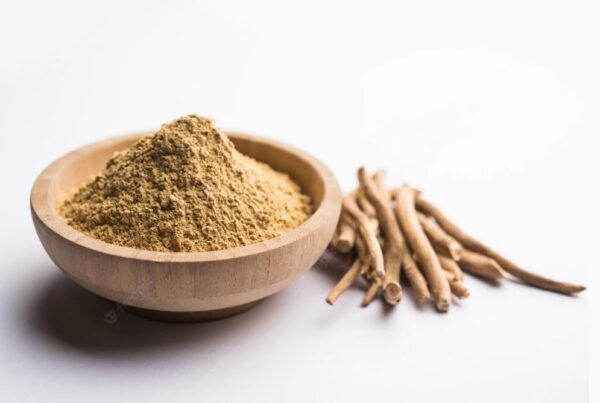Samruddhi Organic has been fostering the culture of organic farming since 2004. We have over 85,000 acres of certified land and our 300+ products are now available in over 20 countries around the world.
Samruddhi Organics especially deals in harvesting Organic Alphonso Mangoes from the Konkan buy arimidex region (Ratnagiri). The mangoes harvested by Samruddhi Organics are purely Organic and rich in Vitamin-C.
We aim in giving the consumer a vast product range which are best-in-class and reasonable.

The Alphonso mango is a named mango cultivar that originated in India. The variety is named after Afonso de Albuquerque, a viceroy general and a distinguished military figure who is credited for the establishment of colonies, of the Portuguese in Goa and Bombay-Bassein. The Portuguese introduced grafting on mango trees to produce varieties like Alphonso. Alphonso is also one of the most expensive varieties of mango, and is grown mainly in the Konkan region of western India.
The Alphonso is a seasonal fruit, available mid-April through the end of June. The fruits generally weigh between 150 and 300 grams (5.3 and 10.6 oz), have a rich, creamy, tender texture and delicate, non-fibrous, juicy pulp. As the fruit matures, the skin of an Alphonso mango turns golden-yellow with a tinge of red across the top of the fruit.
ORGANIC CULTIVATION OF ALPHONSO:
Organic farming is a crop production system that encourages sustainable agriculture by enhancing the biological cycles in nature. It is targeting at producing healthy, high nutritive, pollution-free food maximizing the use of farm resources. And, it seeks to avoid the use of chemical nutrients and pesticides.
Soils preferred for Alphonso Mango cultivation are deep loamy, rich in organic matter, with balance content of macro and micronutrient elements. The only prerequisite is a depth of 2 to 2.5 m and well-drained soil. It prefers slightly acidic soil & does not grow well beyond a soil pH of 7.5.
Loamy soils can accommodate organic matter, which in turn is responsible for the development of good soil biological activity suitable for Organic Mango Production. Chemical or heavy metal residue in soil should not exceed limits set by organic standards.
IMPORTANCE OF GROWING MANGO ORGANICALLY:
- There is a growing market demand for organic Mango fruits.
- For the safety and health of growers and consumers.
- The cost of imported chemical inputs is getting too high.
- Organic Mango farming can cost less and environment friendly.
SPACING OF MANGO TREES:
Spacing between Mango trees changes from variety to variety and a growing environment (dry and wet zone). In the dry zone, the spacing varies from 10 metres X 10 metres, as the vegetative growth is limited, while in wet and rich soils the preferred spacing is 12 metres X 12 metres, as of abundant vegetative growth.
Planting holes must be dug before the start of Rainy season to collect the rain water in the holes and enhance the survival of seedling planted. The holes must be dug to a depth of 1 meter, the width and length must be 1 meter as well. The canopy of the tree must also be kept in contention.
PRUNING PROCEDURE OF TREES:
Pruning the mango tree is very important for tree size control and to improve the fruit colour. Tree Pruning is done to open up the structure to allow good airflow and adequate internal light. It minimizes disease risk and assists in good fruit coloration. Internal Pruning to remove dead wood can be important to help reduce the incidence of diseases like stem-end rot. Flowering should not be allowed for up to 3 years.
KINDS OF ORGANIC FERTILIZERS FOR MANGO FARMING:
- Foliar organic fertilizers derived from a fermented animal of plants such as fish and fruit Amino acids.
- Decomposed animal waste mixed with plant residues, plant leaves with beneficial micro-organisms.
- Vermicompost and earthworm casting fed with decomposing organic materials.
- Sludge or liquid organic waste materials rich in food nutrients with beneficial micro-organisms.
- Green Manure is young plant legumes or beans that are ploughed under and mixed with the soil during the flowering stage.
- Soil and seed inoculate such as nitrogen fixing bacteria and micro-organisms that help decompose organic materials.
- Use of powdered charcoal, wood ash, and carbonized rice hull.
ALPHONSO MANGO PESTS CONTROL ORGANICALLY:
The important pests are hopper, mealybug, stem bores and fruit fly. A pest management practice for each pest is described below:
- Spraying of Biodynamic pesticide prepared from Cow Urine, Neem, Karanj, Castor, Thevtia Nerrifolia, and Vitex spp.
- Spraying Nettle leaf extract sprays to control hard pests such as Mango Hoppers, mealy bugs etc. Nettle spray is prepared by soaking 250 gm of Nettle leaf powder in 4-5 litres of water for 24 hours. Filter the extract and mix in 20 litres of cow urine. Dilute to 200 litres in water and spray on foliage to control the pests.
ORGANIC DISEASE MANAGEMENT IN MANGO TREES:
The important diseases of the Mango tree are Powdery mildew, Anthracnose, Stem-end rot, and Sooty mold. Suggested organic measures are as follows:
- Two sprays of Cow Horn Silica at the flowering and fruit development stage.
- Biodynamic tree paste or cow dung paste for control of gummosis and die back.
- Spraying of Horse tail or Casuarina leaves extracts for control of fungal diseases in the ascending moon period.
- The application of cow dung paste has almost replaced the spray of Copper Oxychloride for the control of die back in rejuvenated old Mango orchards. It is effective in controlling anthracnose and control of stem borer.
ALPHONSO MANGO HARVESTING:
Mango fruits mature in 3 to 4 months from flowering. Harvesting must be started after few fruits drop, during morning hours. Individual fruits are clipped with 1.5 cm stalk by using Mango Harvester. Harvested fruits are kept on gunny bags under shade. Undersized, bruised and infested fruits are sorted out and healthy mango fruits are graded into 2 to 3 grades depending upon colour, shape, and size and packed in wooden or corrugated boxes.
We, at Samruddhi Organics take proud in bringing you the Original Alphonso Mangoes, direct from our farm to your table, as fresh as it gets. Our mangoes are organically cultivated and chemical-free, and are grown in the most natural and optimal environment for Alphonso Mangoes. The mangoes in this box were handpicked and meticulously packed while still green to ensure the highest quality of mangoes, allowing us to confidently state that they are Naturally Ripened.


